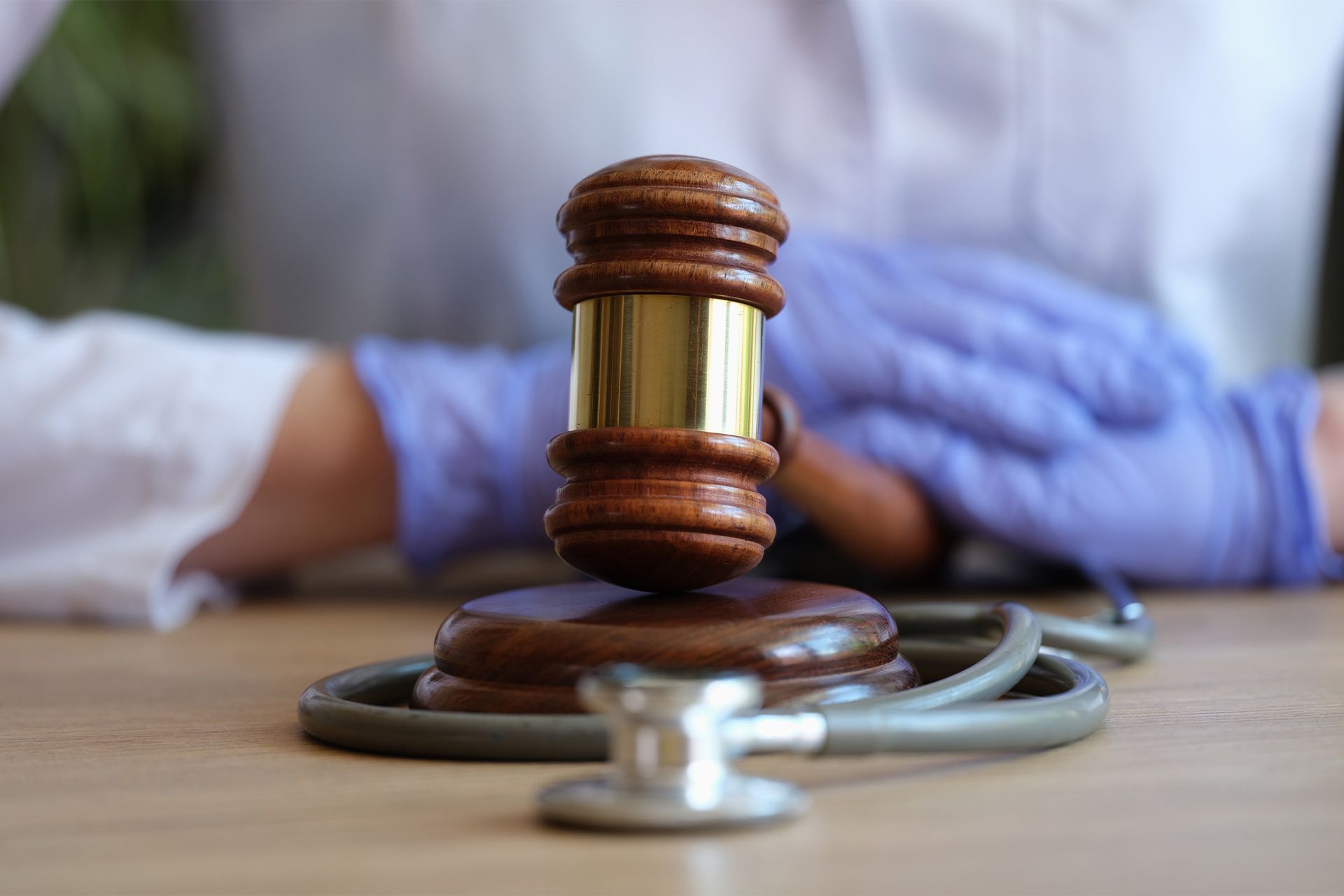Civil Trial Law - What Are The Stages In A Civil Law Case?
If you’re thinking about filing a medical malpractice suit against a physician or a medical institution, it will fall into the category of a civil suit. Still, you likely don’t know anything about civil trial law, which can make it a significant challenge to figure out if you even have a valid case.
Unfortunately, besides contacting an attorney, your options are limited since civil litigation is a complex field that involves multiple stages and is very different from criminal litigation (which is more represented in the media).
Yet, this doesn’t mean you can’t learn the basics of civil trial law and the stages you can expect in the process.
What is civil litigation?
Civil suits allege violations of civil law, and they address situations in which an individual hurts another person. In other words, civil trial law is applied to settling disputes that aren’t criminal in nature. This means that all matters related to claims for compensation and monetary or property disputes will be civil suits.
What are the stages in civil litigation?
Although not as high-stakes as criminal litigation, civil trial law is equally complex and consists of the following stages:
1. Plaint filing
Plaint is a legal document in which all the facts in the case are recorded and summarized. The entire litigation case will be based on the facts in this document and as such, it’s considered the starting point for all civil litigation.
The plaint contains:
Name of the court that handles the litigation process- Details about the parties in the civil dispute
- Facts of the case
- Damages claimed by the plaintiff
- Documents that prove the facts of the case
2. Issuing summons
Once the court accepts the plaint, it will issue a summon to the defendant in the case within 30 days of the initiation of the lawsuit. The defendant has to attend the court hearing with or without legal representation.
Summon gives the defendant an opportunity to reveal their side of the story. In some cases, they may admit to the claim, in which case litigation doesn’t need to proceed further and the case will be resolved in the plaintiff's favor.
3. Appearance of parties
Both parties need to appear in court at the time and date specified in the summon. If the defendant fails to appear, the order will be passed in the plaintiff’s favor. If both parties fail to appear, the case may be dismissed by the court.
4. Interlocutory proceedings
According to civil trial law, the plaintiff has the right to file a notice of motion for interlocutory proceedings, which is considered a temporary injunction. This helps progress the case while solving issues concerning only the main dispute in litigation
Interlocutory proceedings are typically issued for matters related to the sale of properties, the appointment of court receivers, and detention preservation.
5. Defendant’s written statement
The defendant must file a written statement within 30 days of the summons notice that contains the pleas against the facts outlined in the plaint. Civil trial law states that the defendant must deny all allegations, and it also provides the opportunity for the defendant to mention any counterclaims they may or may not be bringing forth.
6. Examination
The court will then record the denial or acceptance of allegations made by the plaintiff and the defendant, at which point the examination of the parties will commence.
7. Framing of the issues
Both parties are allowed to submit issues, upon which the court will agree and frame the final set of issues.
8. Submission of the documents
Next, civil trial law states the parties are required to provide documents to substantiate their claims. If the documents in question are in possession of a third party, the parties must apply to the court, after which summons will be sent to concerned parties in an effort to procure the required documents.
9. Inspection and discovery
After all required documentation has been submitted, the parties can apply for the inspection of the said documents. This enables them to gain access to the documents unless the opposition party denies access.
10. Producing of the documents
After the documents have been submitted and examined and the court accepts the full item list, the documents must be produced in court.
11. Witness examinations
The most important stage in any litigation is the examination of the witnesses. During the first hearing, the court will address the parties and inquire whether they deny or agree with the allegations made by the opposing party.
The plaintiff will then submit evidence and the defendant’s legal representation will cross-examine the plaintiff or any witnesses appearing on the side of the plaintiff. Once one side is done, the process repeats with the other side getting to submit evidence and bring forth the witnesses.
12. Arguments
After all witnesses have been cross-examined, the court will take the arguments. Both parties will present their arguments, the summary of the case, and a recap of evidence that substantiates their claims.
13. Judgment
The judge preceding the court will weigh the merits of both sides, analyze the evidence, and pass the judgment upon which the decree will be passed.
14. Appeal process
If one of the parties doesn’t concur with the judgment, they have the right to apply for a review of the judgment.
15. Decree execution
A civil suit is finally resolved once the execution of the degree starts. At this stage, the decree-holder will force the debtor to perform the mandate of the order in accordance with the judgment.
Once the creditor receives the money or the claims directed by the judgment order, the decree will be considered performed.
Litigation support
Whereas a criminal trial will be mostly concerned with the penalties for wrongdoing, civil litigation has everything to do with compensation. You may not see it presented in the media often, but it’s as interesting and as complex.
Keep in mind that by making any missteps in the process outlined above, your suit may be dismissed, which is why you should work with an attorney for your civil litigation case.
Attorneys at Chakour Law can provide you with the necessary support in all stages of your case, from its infancy to its conclusion. We exclusively represent victims harmed by medical malpractice, and because we have medical practitioners on staff who are as equally experienced in the field of the law, you can rest assured your case will be in good hands
Civil litigation can be lengthy and complex, but we are prepared to support you and help you persevere until the very end.
Call (833) 633-6257 or fill out our contact form to receive a free case evaluation.
Note:
The information in this blog post is for reference only and not legal advice. As such, you should not make legal decisions based on the information in this blog post. Moreover, there is no lawyer-client relationship resulting from this blog post, nor should any such relationship be implied. If you need legal counsel, please consult a lawyer licensed to practice in your jurisdiction.
Disclaimer: The information on this website and blog is for general informational purposes only and is not professional advice. We make no guarantees of accuracy or completeness. We disclaim all liability for errors, omissions, or reliance on this content. Always consult a qualified professional for specific guidance.
RECENT POSTS






